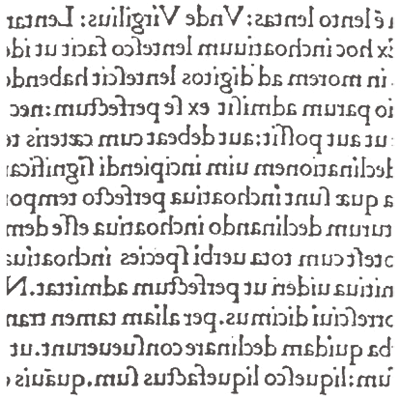New procedure for service of documents under the Civil Procedure Code
Electronic service between attorneys, and the end of fictitious service. The amendment to the Civil Procedure Code has brought numerous changes to the service of legal documents.

New litigation management tools for judges
Two conditions must be met for a civil dispute to be resolved effectively: at the earliest stage of the case it must be precisely defined what is truly disputed between the parties, and the proceeding should be planned so that those issues can be focused on. If this can be achieved, the parties and the court can devote their energy and attention to the truly relevant issues. This will improve the speed and quality of judicial decisions, legal certainty, and security of commerce.

Direct compensation from insurers under the new commercial procedure
Will the amended civil procedure rules improve the litigation position of people suffering a loss in motor vehicle collisions?

Public companies must adopt a compensation policy
On 5 November 2019, the President of Poland signed into law an amendment to the Act on Public Offerings and Conditions for Introduction of Financial Instruments into an Organised Trading System and on Public Companies. Most of the new regulations enter into force 14 days after publication of the amending act. It is intended to adjust Polish law to reflect the entry into force of the EU’s Prospectus Regulation (2017/1129) (which generally should have been done by July).

Fee for alternative claims in arbitration
In arbitration, as in proceedings before the state courts, it is permissible to assert alternative claims alongside the principal claim. But there are no express rules on the fees for such claims in the Act on Court Costs in Civil Cases or in the rules and fee schedules of arbitral institutions. This raises the question of how fees should be calculated for alternative claims in the two types of proceedings, and whether the rules are the same.

When do lawmakers give an investor a second chance?
Before the first contractors appear on the construction site, the investor must comply with many formalities, including obtaining a building permit. But what if the documentation filed with the construction authorities proves incomplete or does not comply with the regulations? Does this necessarily bar completion of the project?

Mandatory websites for joint-stock companies
With the New Year, an amendment to the Polish Commercial Companies Code will enter into force requiring every joint-stock company or joint-stock limited partnership to maintain its own website for communicating with shareholders. The new obligation is motivated by the process of digitalisation of joint-stock companies, but is also designed to increase protection of shareholders’ rights.

Registration of beneficial owners
Under the Polish Anti Money Laundering and Countering Financing of Terrorism Act of 1 March 2018, newly established companies and partnerships are required to submit information about their beneficial owners to the Central Register of Beneficial Owners from 13 October 2019, and existing entities must do the same from 13 April 2020. The register is public and accessible free of charge.

ECJ ruling on FX mortgage loans in Poland: Is it really a breakthrough?
One of the most critical issues captivating banks and their retail borrowers in recent years in Poland has been the future of foreign currency loans, especially those denominated in or indexed to Swiss francs. After the political battle around such loans has settled, the issue is now mainly addressed in court proceedings between borrowers and creditors. A long-awaited judgment was issued by the European Court of Justice on 3 October 2019 and has already been followed by judgments of local Polish courts. Putting aside myths and hopes, we look closer at what may be the actual consequences of the ECJ ruling for all interested parties: borrowers and both primary and secondary creditors.

EU–China Strategic Outlook
Two of the world’s greatest powerhouses, the European Union and China, are linked by an enduring relationship with close trade and economic ties. Both are committed to a comprehensive strategic partnership, and both share commitments and interests in global sustainable development.

Criminal procedure: Third reform, dubious results
On 5 October 2019, the third “fundamental” reform of Polish criminal procedure in the last four years came into force. It is supposed to be faster, fairer and less bureaucratic. We heard the same claims for the changes coming into force on 1 July 2015 and then on 15 April 2016. But court cases have not speeded up. On the contrary, there are more complaints about delays and thus payments from the State Treasury to victims of dilatory proceedings.

Yellowhammer—a whip for carriers: Who will be responsible for deterioration of perishable goods during border controls?
In September, the British media published a documentary on Operation Yellowhammer, analysing the possible effects of the UK’s withdrawal from the European Union without an agreement. The legal chaos caused by a hard Brexit could lead to several days of truck stoppages at the border, creating a risk of damage to perishable goods.
